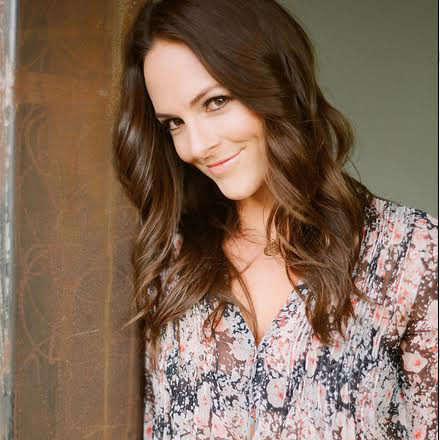Why Cutting Calories Could Be Sabotaging Your Health Goals


Kelly LeVeque is a celebrity nutritionist, wellness expert, and health coach based in Los Angeles. Before starting her consulting business, Be Well by Kelly, she worked in the medical field for Fortune 500 companies, eventually moving into personalized medicine, offering tumor gene mapping and molecular subtyping to oncologists. Kelly’s client list includes Jessica Alba, Chelsea Handler, Kate Walsh, and Emmy Rossum. Guided by a practical and always optimistic approach, Kelly helps clients improve their health, achieve their goals, and develop sustainable habits to live a healthy and balanced life. This month, she debunks one of the most common weight loss myths—that you automatically need to cut calories in order to make progress.
One of the main ways most diets steer you wrong is by asking you to restrict or count calories, remove food groups, or weigh your food. But even if a plan doesn’t specifically instruct you to track, count, and watch calories, most clients I meet with initially believe they need to reduce calories if they want to lose weight. The idea of calories is so deeply ingrained in us that if we even allow ourselves to eat breakfast, we limit it to a hard-boiled egg, a non-fat latte, a protein bar, or a solo green juice.
Even as recently as 2015, the USDA and the Department of Health and Human Services stated together that the best way to manage weight was to “control calorie intake” and maintain “appropriate calorie balance during each stage of life—childhood, adolescence, adulthood, pregnancy and breastfeeding, and older age.” This principle has been the sometimes silent, and sometimes overt, foundation of almost every diet published over the past 50-plus years.
But here’s the deal: Calories don’t count—they backfire. Calorie consumption guidelines diminish our underlying trust in ourselves to make good food choices. Furthermore, they ignore biological needs, blood sugar responses, and hormonal reactions. Eating those 100-calorie packs undermines and erodes an innate ability that we all possess: our bodies’ natural drive to find their ideal weight and set point. They spike your blood sugar, release the storage hormone insulin, and have you craving more sugar and processed carbohydrates in three hours.
Keep reading for three more truth bombs about calorie counting—and what to do instead.
Instead of calories, focus on macros.
More often my recommendation would be to up the intake of specific food groups or macronutrients based on current eating behaviors, micronutrient deficiencies, or a health diagnosis. It isn’t calories we need—it’s essential amino acids, essential fatty acids like omega-3, resistant starch and fiber for gut health and colorful veggies for phytonutrients, vitamins, and minerals. Health is about providing your body with a mix of macronutrients that synergistically create wellness. For example, if you are having a salad without the dressing or a fat like avocado, you are missing out on absorbing fat-soluble vitamins like A, D, E, and K, along with missing out on inflammation-fighting photochemicals too.
Healthy fat is higher in calories, but it also helps suppress our hunger.
The worst part is that the first thing people tend to ditch when they are counting calories is healthy fat. However, when we eat fat, our body releases the “satiety hormone” cholecystokinin, which slows our digestion and elongates our blood sugar curve so we don’t need to snack.
If you're looking to build muscle, tweaking your calorie or protein intake isn't necessarily the answer.
If someone is looking to build muscle, they need to lift weights. Upping calories or protein isn't going to work. In fact, many times people trying to put on muscle overdo it with protein, and they end up looking puffy and swollen. Contrary to that popular belief, this doesn’t mean you should eat protein every three hours to prevent muscle wasting (or protein breakdown).
That theory was proven wrong years ago—muscle responds to use, stress, and challenge, not meal timing. In fact, studies have gone as low as 800 calories (80 grams of protein) per day for several weeks without a change in muscle size. Fitness expert Brad Pilon uses the example of wearing a cast: If you take off the cast, the muscle has wasted away, and yet the opposite arm is still strong, and the body was only fed one way. Takeaway: Use it, and you won't lose it.
Next up: These three tricks might help you enjoy running again.
Disclaimer
This article is provided for informational purposes only and is not intended to be used in the place of advice of your physician or other medical professionals. You should always consult with your doctor or healthcare provider first with any health-related questions.

The book that changed my life: Awaken the Giant Within by Tony Robins
The most amazing meal I've ever had: Abroad it would be the olive oil poached white fish with fresh garden squash and olives that I had at La Residencia Mallorca. In the U.S., I would go with any meal at ABC Kitchen in NYC. Their menu has so much flavor without being heavy!
The morning and nighttime routines I swear by: I'm bad with routine, I just cleanse and moisturize. However I do know the products that work best for my skin and if I need a refresh. These are my favorites: Goat Milk by Kate Sommerville, Juice Beauty Organic Face Wash, Vitamin C by SkinCeutical, Calendula Oil by Eminence, DermalQuench Liquid Lift by Kate Sommerville, CytoCell by Kate Sommerville, and Ruby Scrub by Dr. Goldfadden.
The best décor hack I've learned: Buy at a flea market and reupholster with organic materials.
My interior stylist spirit animal is: Gwyneth Paltrow for her clean, fresh look with style or Jennifer Aniston's modern and warm aesthetic.
The Instagram handles I follow religiously are: @feedfeed, @food52, @wellandgood, @puppyoftheday, and @garypeppergirl.
This season, my go-to cocktail order is: Vodka Water Lemon in single shot tall glass.
The first lesson I learned as an Adult with a capital A: Don’t take a job for the money. You will always make more of a life in a passion and purpose-driven career.
The most surprising thing I learned from a MyDomaine story is: I love that you can shop the stories! Everything in home decor always seems so unattainable, I currently can't afford a 30k turkish rug, but having roundups of products that are similar in a range of products help me purchase the hippest style in my price range.

